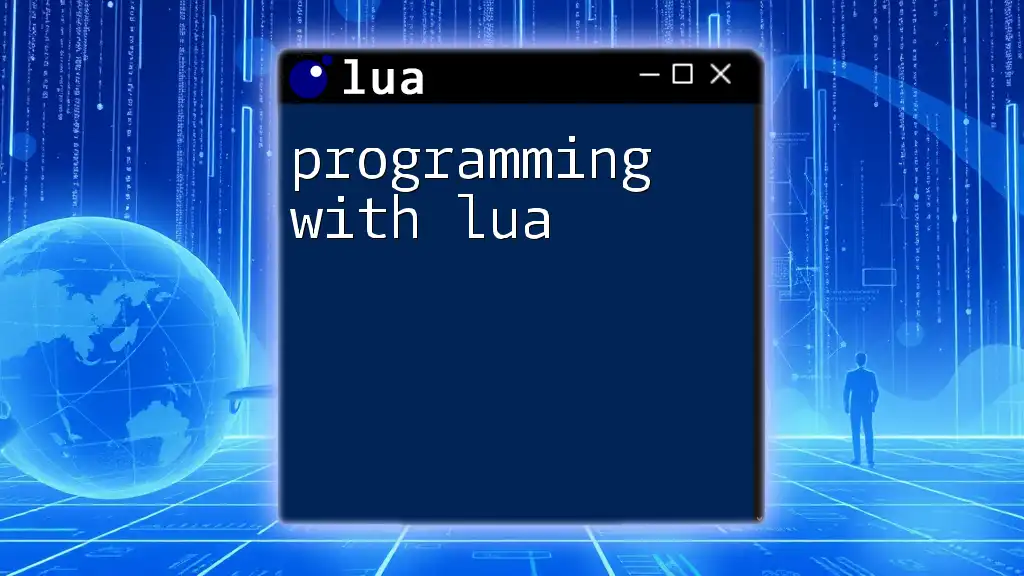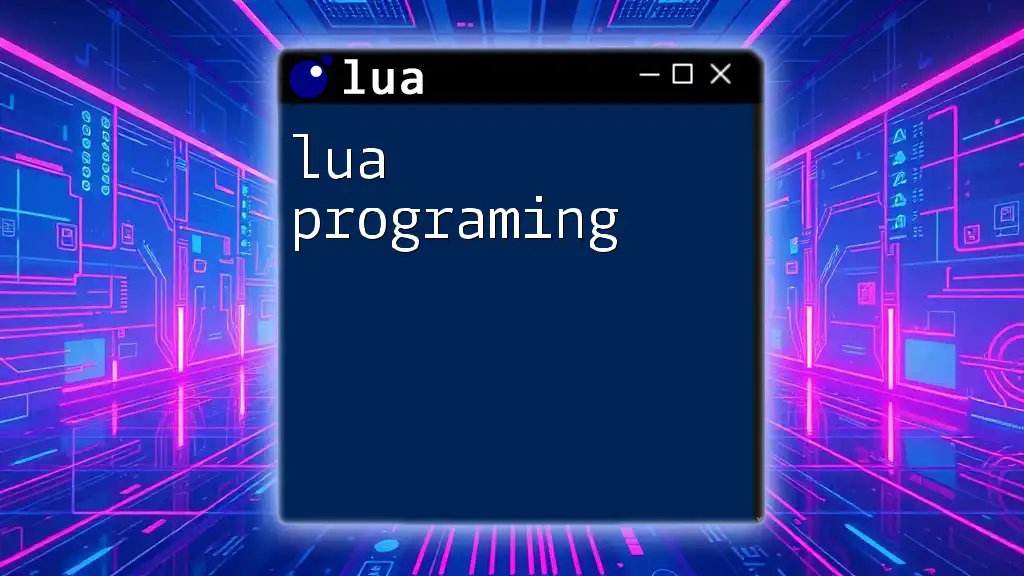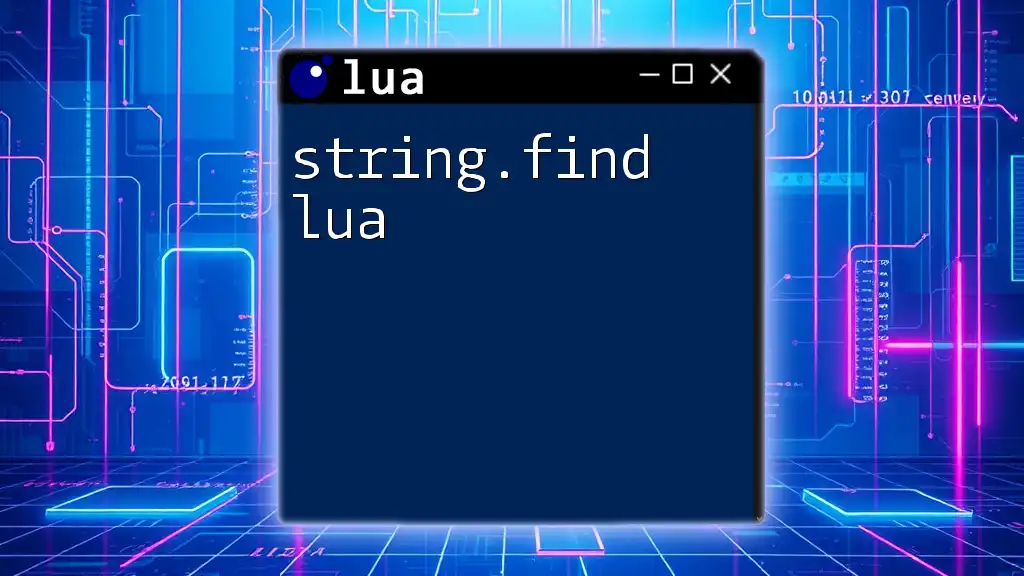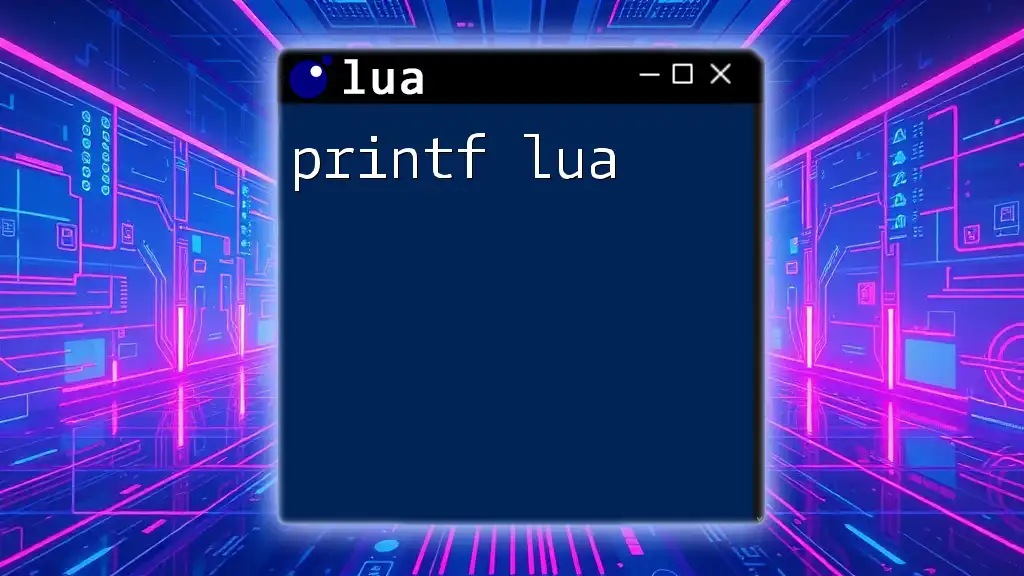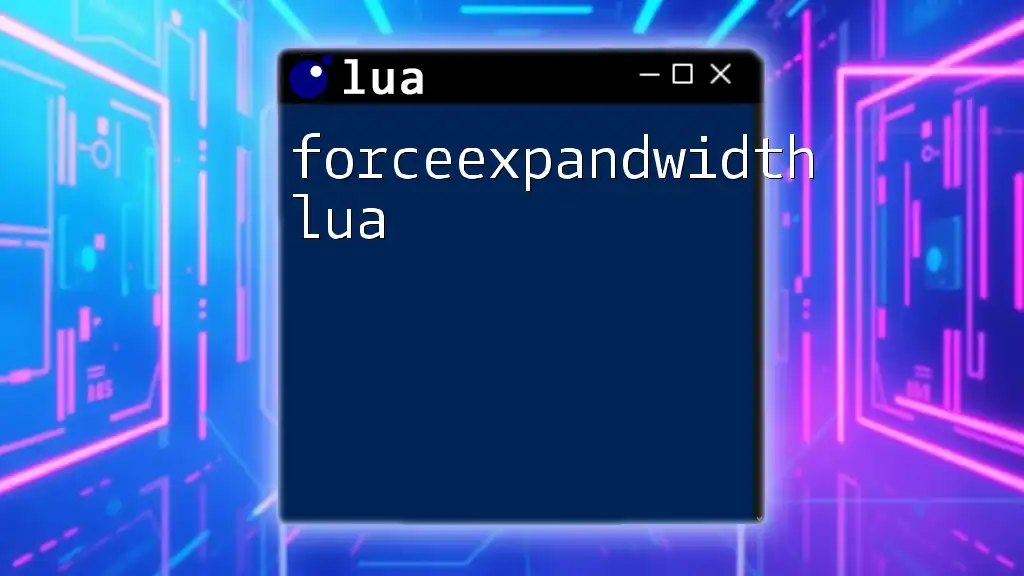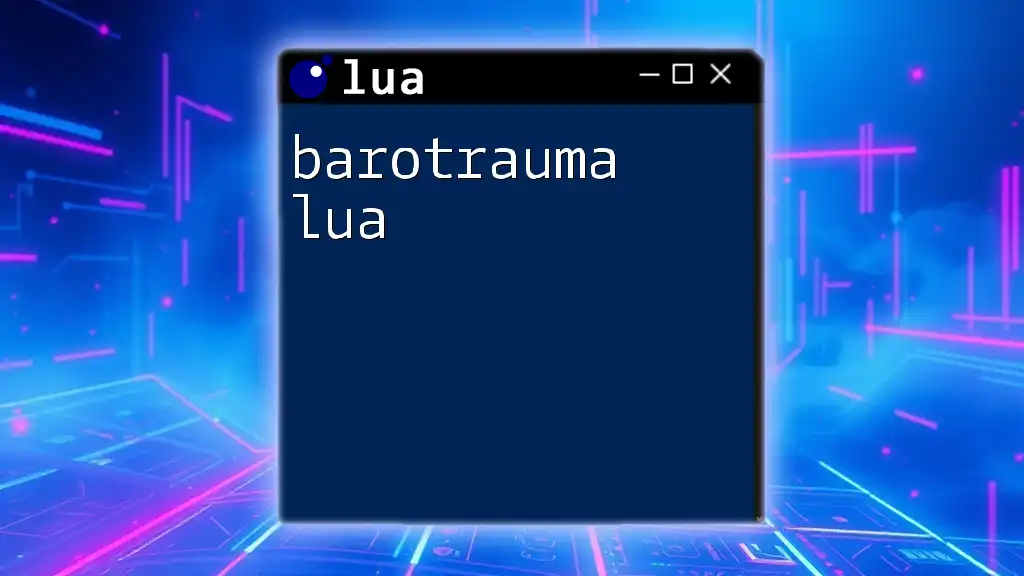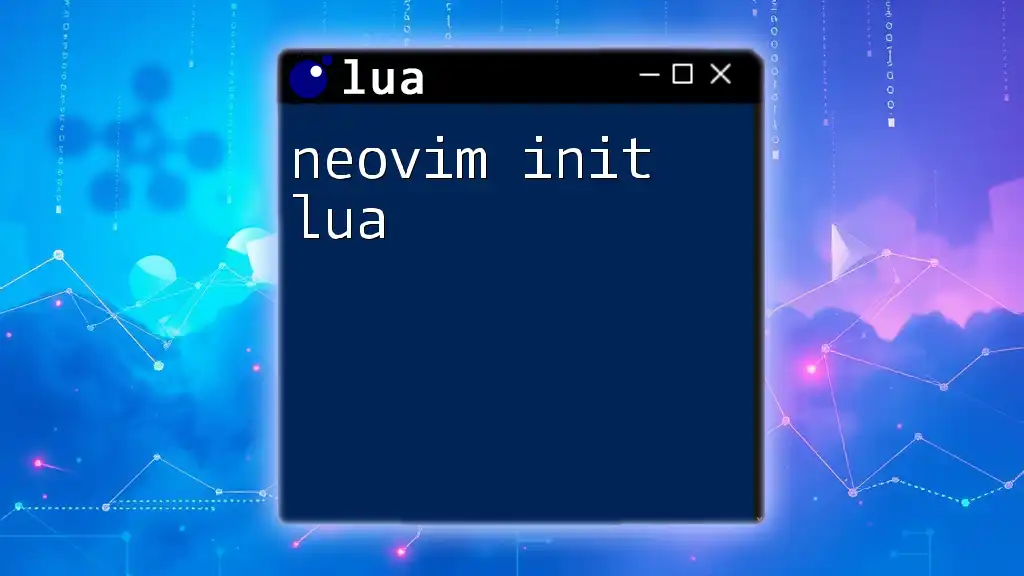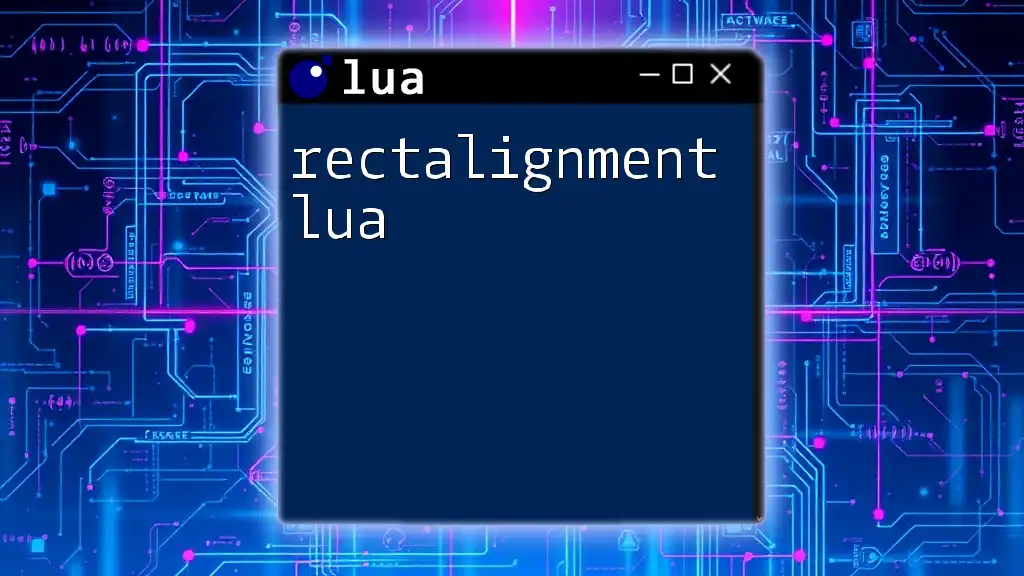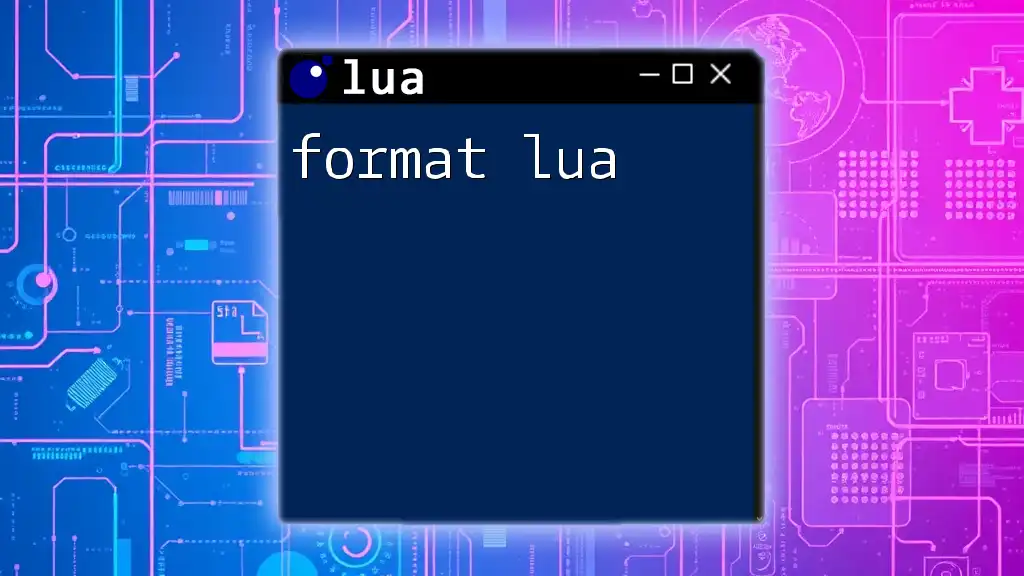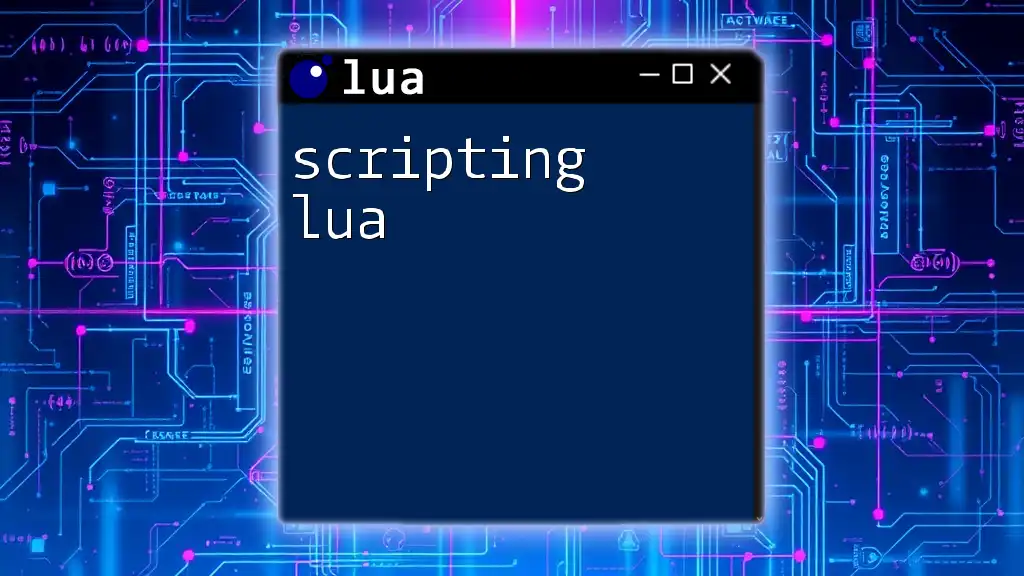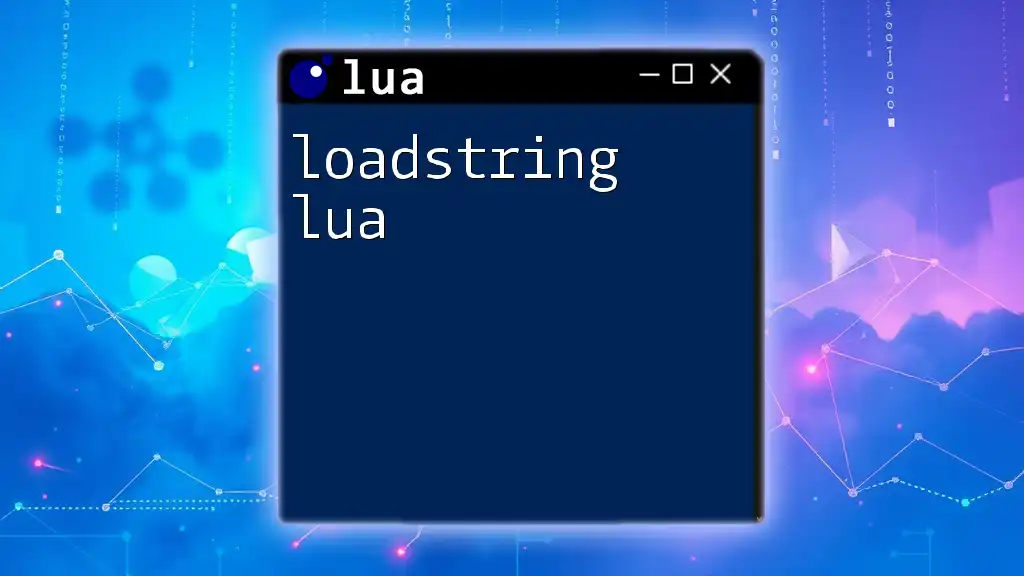Programming with Lua allows developers to create lightweight, efficient scripts with a simple syntax, making it ideal for game development and embedded systems. Here's a quick example of a Lua script that prints "Hello, World!" to the console:
print("Hello, World!")
Introduction to Lua
What is Lua?
Lua is a powerful, efficient, lightweight scripting language designed primarily for embedded use in applications. Originating in 1993, Lua was created in Brazil by Roberto Ierusalimschy, Luiz Henrique de Figueiredo, and Waldemar Celes as a tool to extend applications in a flexible and efficient manner. With its minimalistic design, Lua is employed in various domains, most notably in gaming, web development, and embedded systems.
Why Choose Lua?
When considering the development of software applications, several reasons make Lua an appealing choice:
- Lightweight and Fast Execution: Lua's minimalistic approach ensures it has a small footprint and runs efficiently on various systems. It is known for its speed, which is why many game engines favor it.
- Flexible and Easy-to-Learn Syntax: Lua’s syntax is user-friendly, making it accessible for beginners while also powerful for experienced developers.
- Integrability with Other Programming Languages: Lua can be seamlessly embedded into applications written in languages like C and C++, allowing developers to enhance their existing codebases.
Many mainstream applications—such as the game engines Love2D and Unity—leverage Lua for scripting due to its versatility and robustness.
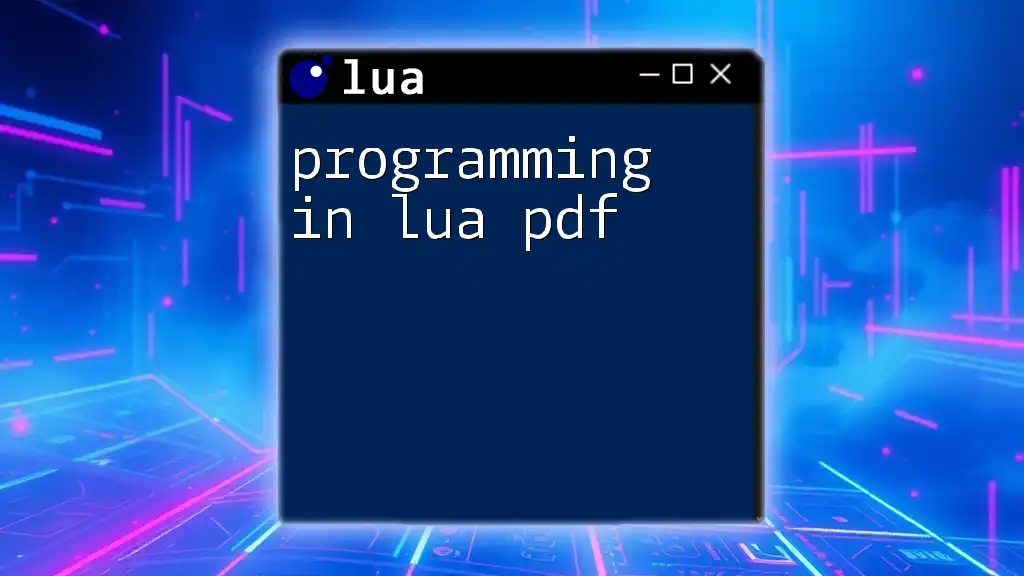
Setting Up Your Environment
Installing Lua
Before diving into programming with Lua, you need to set up your environment. Installation varies depending on your operating system:
- Windows: Download the LuaBinaries for Windows and follow the installation instructions.
- macOS: Using Homebrew, run `brew install lua` in the terminal.
- Linux: Most distributions have Lua available in their package managers. For Ubuntu, use `sudo apt-get install lua5.3`.
Recommended IDEs and Text Editors
To code effectively in Lua, various IDEs and text editors can enhance your productivity. Popular choices include:
- ZeroBrane Studio: A lightweight IDE with debugging capabilities.
- VS Code: With extensions for Lua syntax highlighting and linting.
- Sublime Text: Highly customizable with Lua packages.
Running Lua Scripts
You can run Lua scripts from the command line. After installation, simply enter the Lua interpreter by typing `lua` in the terminal. Write your scripts in a `.lua` file and execute them with:
lua yourscript.lua
Example: Your first Lua script
Create a file called `hello.lua` and include the following:
print("Hello, World!")
Run it using the command mentioned above to see your first successful Lua output.
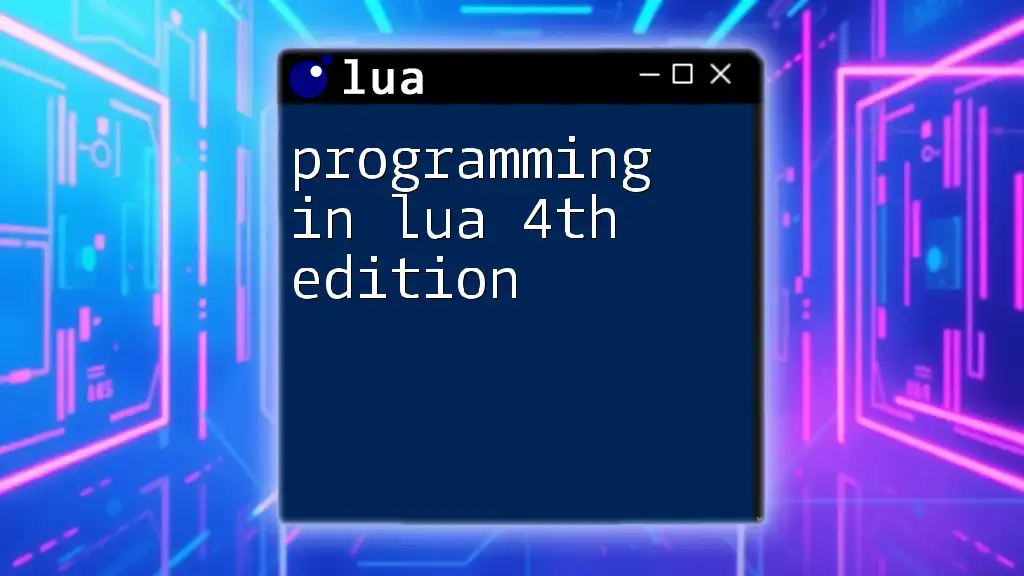
Basics of Lua Programming
Data Types in Lua
Lua supports several essential data types, forming the backbone of any Lua program:
- Strings: Sequence of characters, e.g., `"Hello, Lua!"`.
- Numbers: Lua supports integers and floating-point numbers, e.g., `42`, `3.14`.
- Booleans: Represent truth values using `true` or `false`.
- Tables: The most versatile and fundamental data structure in Lua. Tables can act as arrays, dictionaries, or objects.
- Functions: Lua treats functions as first-class citizens, allowing you to store them in variables, pass them as arguments, or return them from other functions.
Example code snippets demonstrating each data type:
local greeting = "Welcome to Lua!"
local answer = 42
local isLuaFun = true
local myTable = {name = "Lua", version = 5.3}
local add = function(a, b) return a + b end
Variables and Scope
In Lua, variables can be defined as global or local:
- Global Variables: Declared without a local keyword and accessible from anywhere in the code.
greeting = "Hello, World!"
- Local Variables: Declared with the `local` keyword, restricting their access to the block in which they are defined.
local age = 25
Example: Variable scope in a simple program
function testScope()
local x = 10
print(x) -- prints 10
end
testScope()
print(x) -- error: attempt to access 'x' (a local variable) outside its scope
Control Structures
Control structures help dictate the flow of Lua programs through the following:
- Conditional Statements: Use `if-then-else` to execute code conditionally.
if age >= 18 then
print("Adult")
else
print("Minor")
end
- Loops: Lua supports several types of loops:
for i = 1, 5 do
print(i) -- prints numbers 1 to 5
end
local count = 1
while count <= 5 do
print(count)
count = count + 1
end
local count = 1
repeat
print(count)
count = count + 1
until count > 5
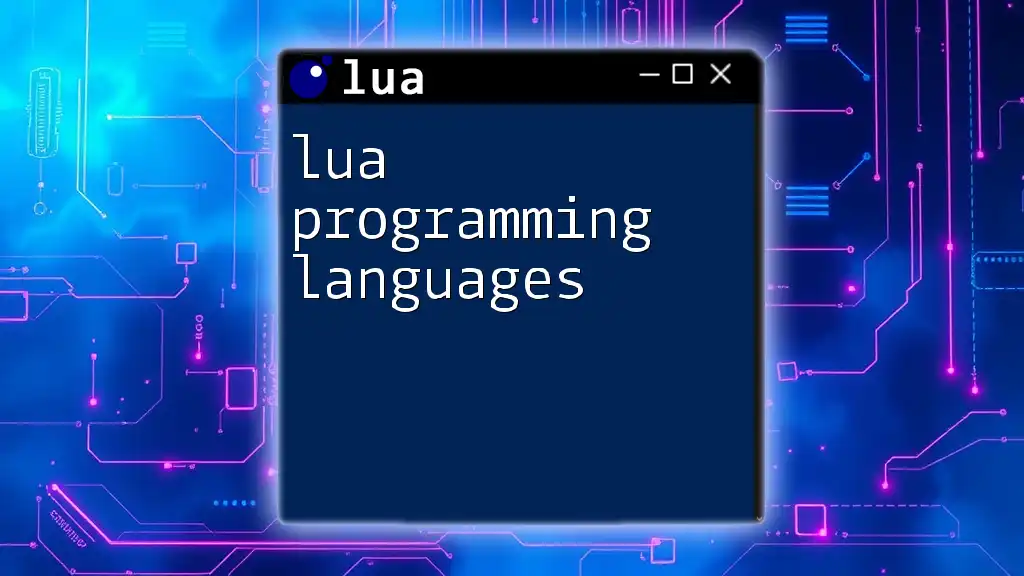
Functions in Lua
Defining Functions
Functions in Lua enable code reusability. Define functions using the following syntax:
function myFunction()
print("This is a function.")
end
Function Parameters and Return Values
Parameters can be passed to functions, and they can also return values:
function add(a, b)
return a + b
end
local sum = add(5, 3) -- sum will be 8
Anonymous Functions and Closures
Lua supports anonymous functions, which are functions without a name, often used for callbacks. A closure is a function that captures its surrounding environment.
local function closureExample()
local x = 10
return function()
print(x)
end
end
local myClosure = closureExample()
myClosure() -- prints 10
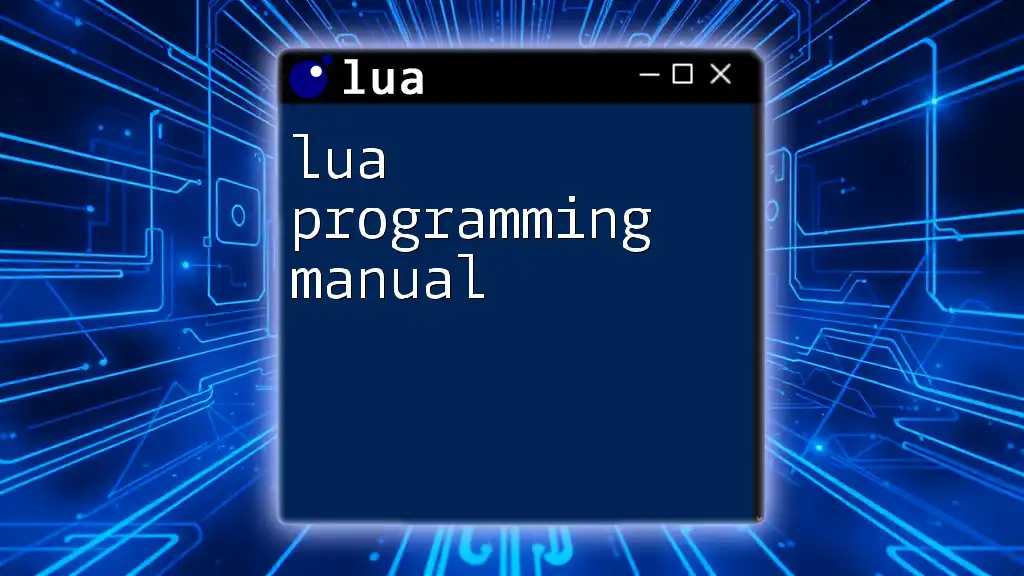
Working with Tables
Introduction to Tables
Tables in Lua act as associative arrays or records, allowing for complex data structures. A table can be created using curly braces:
local myTable = {key1 = "value1", key2 = "value2"}
Table Operations
You can manipulate tables easily. Here's how to add and remove elements:
myTable["key3"] = "value3" -- adds a new key-value pair
myTable.key1 = nil -- removes key1
Example: Building a simple contact list with tables
local contacts = {}
contacts["John"] = {phone = "123-4567", email = "john@example.com"}
contacts["Jane"] = {phone = "987-6543", email = "jane@example.com"}
for name, info in pairs(contacts) do
print(name .. "'s phone: " .. info.phone)
end
Metatables and OOP in Lua
Lua supports a form of Object-Oriented Programming (OOP) using tables and metatables. A metatable allows you to change the behavior of tables.
local mt = {
__index = function(table, key)
return "Not Found"
end
}
local myObject = setmetatable({}, mt)
print(myObject.someKey) -- prints "Not Found"
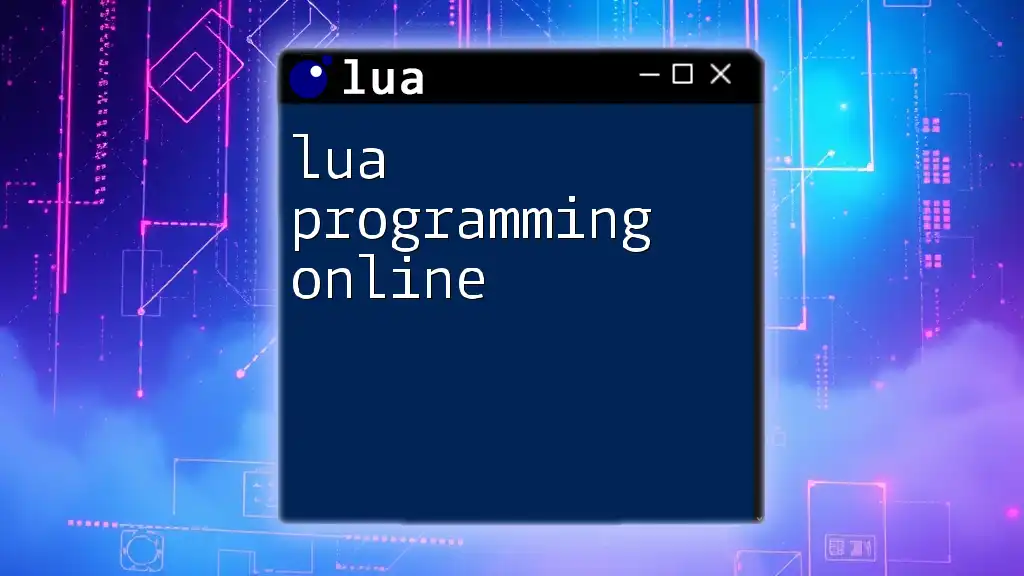
Lua Libraries and Modules
Standard Libraries Overview
Lua comes with several built-in libraries, including the `string`, `math`, and `table` libraries, each offering numerous useful functions:
- String Library: Manipulate string data.
- Math Library: Perform mathematical operations.
- Table Library: Functions to manipulate tables.
Using External Libraries
For enhanced functionality, you can install and use external libraries using LuaRocks. This package manager makes it easy to find and install Lua modules.
Example: Utilizing an external library to extend functionality
luarocks install luasocket
After installation, you can use the library in your script:
local socket = require("socket")
local tcp = socket.tcp()
-- Further socket programming code here
Creating Your Own Module
Creating a module in Lua allows you to package functionalities. A simple example might look like this:
-- mymath.lua
local M = {}
function M.add(a, b)
return a + b
end
return M
Use it in another script:
local mymath = require("mymath")
print(mymath.add(3, 4)) -- prints 7
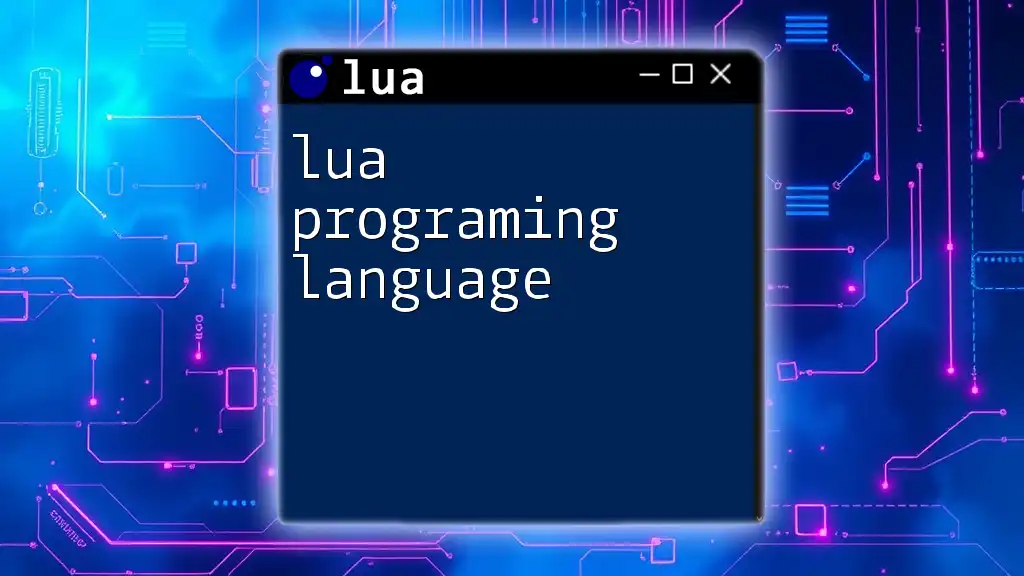
Debugging and Best Practices
Common Lua Errors and How to Fix Them
Just like any language, Lua is prone to errors. Some common errors include syntax errors, runtime errors, and logical errors. Using the `pcall` function can help handle and debug these errors gracefully.
function mightFail()
return nil -- Simulating a failure
end
local status, err = pcall(mightFail)
if not status then
print("Error: " .. err)
end
Best Practices for Writing Efficient Lua Code
To write effective Lua code, consider the following:
- Use meaningful variable names and consistent formatting for readability.
- Comment your code to explain complex logic.
- Optimize performance by minimizing table resizing and avoiding global variables.
Testing Your Lua Code
Develop a testing strategy using tools like [Busted](http://olivinelabs.com/busted/) to ensure your code functions as intended. Testing is a crucial aspect that enhances code reliability and prevents future bugs.
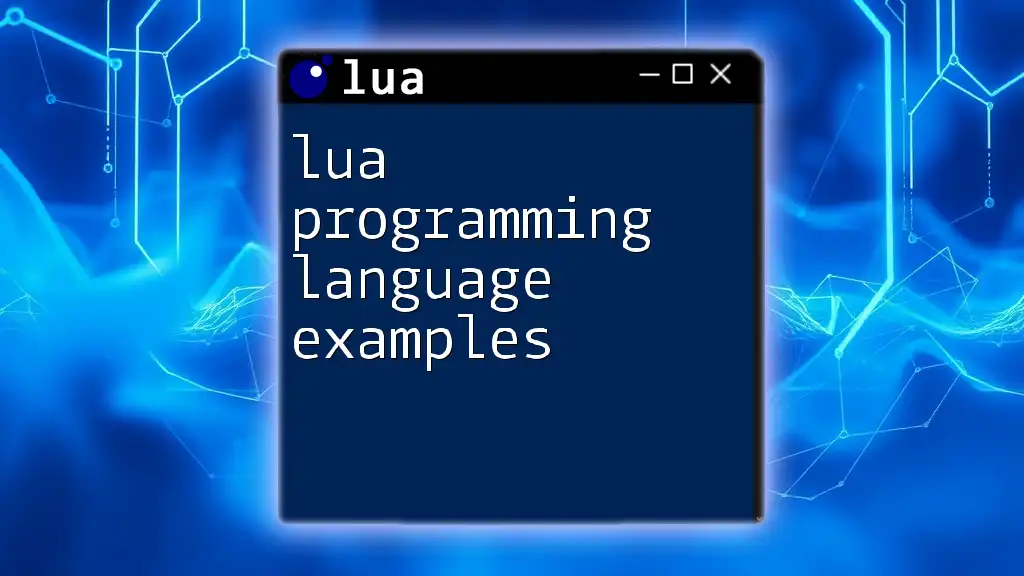
Lua in the Real World
Use Cases for Lua
Lua enjoys extensive use in diverse industries:
- Game Development: Lua is known for its integration into game engines like Unity and LÖVE, allowing for dynamic game scripting.
- Web Development: Lua can serve as a backend language, facilitating rapid development and performance efficiency in web applications through frameworks like OpenResty.
- Embedding Lua: Lua can be embedded into user applications to provide scripting capabilities, significantly enhancing the software's functionality.
Community and Resources
The Lua community is vibrant, offering various resources for learning and support. Consider checking out:
- The official Lua website for documentation and updates.
- Community forums for discussions and assistance.
- A selection of books and online courses geared towards both beginners and advanced users.
Future Prospects of Lua
As technology evolves, the demand for lightweight scripting languages remains high. Lua’s performance, portability, and flexibility are likely to keep it relevant in future developments, especially in gaming and embedded systems.
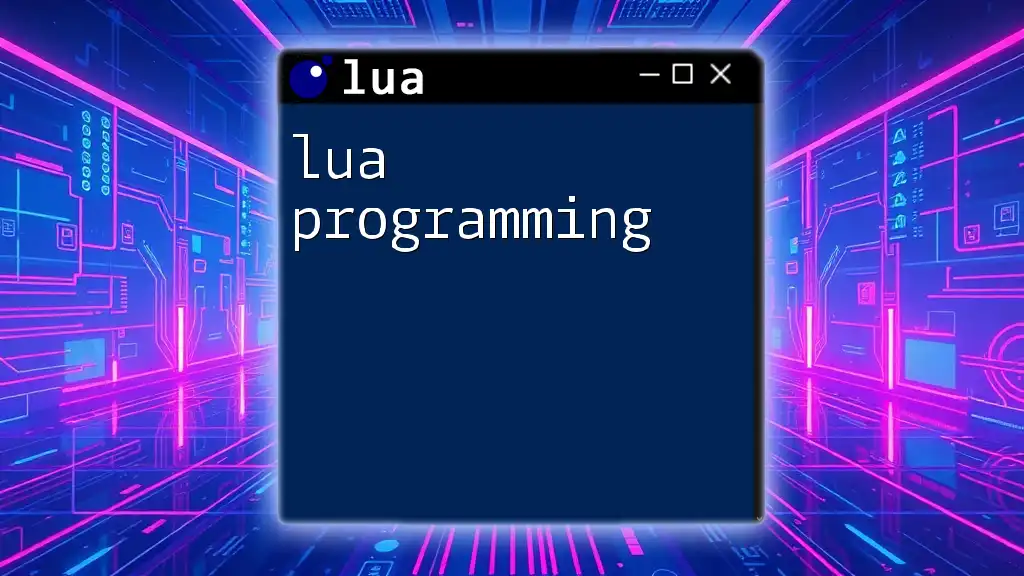
Conclusion
In summary, programming with Lua opens doors to extensive opportunities, from game development to web applications. Its simplicity and power allow developers of all skill levels to dive into coding quickly. Embrace the rich set of features that Lua offers, and explore the community-driven resources available to further enhance your skills. Now is the perfect time to start your journey into programming with Lua—join our community and gain access to more resources, tutorials, and support!
Appendix
Important Lua Commands Summary
- `print()`: Outputs to the console.
- `require()`: Imports Lua modules.
- `setmetatable()`: Sets a metatable for a table.
Helpful Lua Cheatsheet
For quick reference, consider compiling a Lua cheatsheet that includes syntax examples, common functions, and best practices.
Links to Online Lua Code Editors
Explore web-based Lua editors for instant practice without installation, allowing you to try out concepts on the fly.

